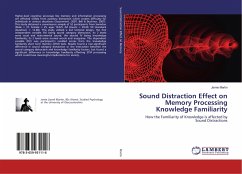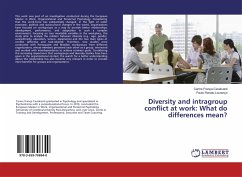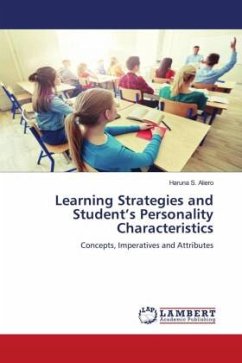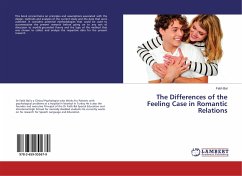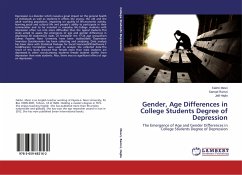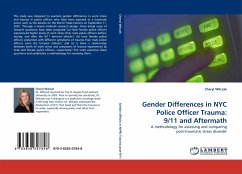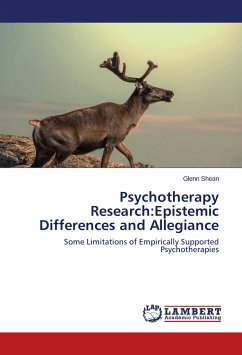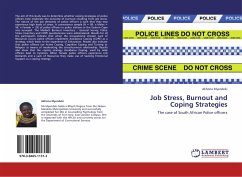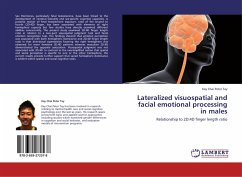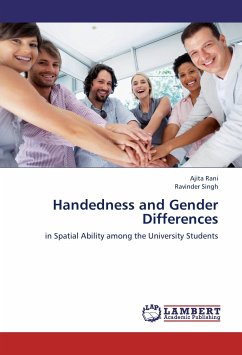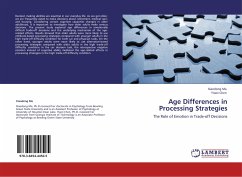
Age Differences in Processing Strategies
The Role of Emotion in Trade-off Decisions
Versandkostenfrei!
Versandfertig in 6-10 Tagen
32,99 €
inkl. MwSt.

PAYBACK Punkte
16 °P sammeln!
Decision making abilities are essential in our everyday life. As we get older, we are frequently asked to make decisions about retirement, medical care, and housing. Considering certain cognitive capacities changes in older adulthood, it is important to investigate how older adults make various decisions. The present study explored age differences in emotionally difficult trade-off decisions and the underlying mechanism of the age-related effects. Results showed that older adults were more likely to use attribute-based processing strategies compared with younger adults in the high trade-off di...
Decision making abilities are essential in our everyday life. As we get older, we are frequently asked to make decisions about retirement, medical care, and housing. Considering certain cognitive capacities changes in older adulthood, it is important to investigate how older adults make various decisions. The present study explored age differences in emotionally difficult trade-off decisions and the underlying mechanism of the age-related effects. Results showed that older adults were more likely to use attribute-based processing strategies compared with younger adults in the high trade-off difficulty condition for both car and physician tasks. On the other hand, younger adults were more likely to use alternative-based processing strategies compared with older adults in the high trade-off difficulty condition. In the car decision task, the retrospective negative emotion instead of cognitive ability mediated the age-related effects in processing strategies in the high trade-off difficulty condition.



